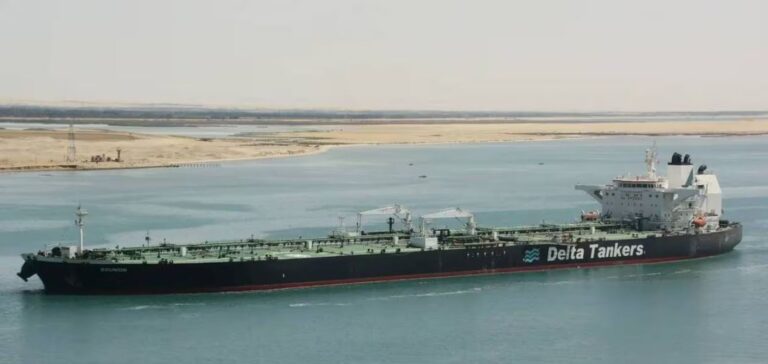On August 21, the Greek tanker Sounion was severely damaged after being hit by four missiles fired by the Houthis, an Iranian-backed rebel group.
The attack took place as the vessel, loaded with one million barrels of Basrah Heavy crude oil from Iraq, was sailing west of Al Hudaydah, off the coast of Yemen.
These terrorist actions, which are on the increase in the region, are aimed at disrupting vital energy flows through the Red Sea, a strategic route for world trade.
The incident began at 2:57 UTC when two Houthi boats approached the Sounion and opened fire.
Shortly afterwards, at 5:00 UTC, three missiles were fired at the ship, followed by a fourth missile at 5:49 UTC.
The latter caused a fire on board the tanker, rendering the vessel unable to maneuver and leaving it adrift.
Although the 25 crew members managed to avoid serious injury, the attack underlines the intensifying risks in this Iranian-influenced region.
Greek authorities quickly confirmed that the Sounion was carrying a cargo of crude oil destined for Motor Oil’s refinery in Agioi Theodoroi, Greece.
The vessel had loaded its cargo on August 12 in Iraq.
This event is one of the most serious recent attacks in the Red Sea, a region that has become increasingly unstable due to Iranian-backed actions.
Iran’s role in regional instability
Iran’s direct involvement in supporting the Houthis is no longer a secret.
By providing sophisticated weapons and logistical support to this rebel group, Iran seeks to extend its influence in the region while disrupting global energy flows.
Iran’s strategy is clearly to use the Houthis as an armed arm to attack Western interests and those of their allies in the region, notably by targeting vital Red Sea shipping routes.
Since the beginning of the month, eight ships have been the target of similar attacks in this area, including three operated by Delta Tankers.
These incidents show that Iran, via its proxies, is not only interfering in regional conflicts, but is also seeking to exert strategic pressure on shipping routes vital to global trade.
The Red Sea, through which much of the world’s oil transits, is now a crucial theater of operations for Teheran and its Houthi allies.
Impact on maritime and energy trade
The consequences of these attacks are already being felt in international maritime trade.
Several major companies, including BP, Maersk and QatarEnergy, have taken steps to avoid high-risk areas by redirecting their vessels to the Cape of Good Hope.
Although costly and time-consuming, this rerouting is seen as a necessary response to ensure the safety of ships and their cargoes.
Furthermore, the increased volatility of oil supply flows due to these attacks could have repercussions on global energy prices, already under pressure due to geopolitical tensions and economic uncertainties.
Market operators are closely monitoring developments, aware that any further escalation could lead to major disruption to energy supplies.
The impact of these events extends far beyond the Red Sea region.
The security of international shipping lanes is now a major concern for governments and businesses around the world.
Efforts to secure these routes, notably through intensified maritime patrols and international cooperation, are underway, but the challenge remains immense in the face of the growing audacity of Iranian-backed groups.






















